10 Plants Soldiers Looked for During the Civil War
An estimated 3 million soldiers fought in the US Civil War. This was before the age of robust military logistics and both sides struggled to feed their armies adequately.
Generally, soldiers were provided hard and soft bread, salted or fresh meat, beans, peas, rice, cornmeal, vinegar, and molasses when available.
Often, this was enough to fill their stomachs but not enough to provide proper nutrition or energy for combat.
To supplement their diets, soldiers foraged in the surrounding landscape. Beyond the need for sustenance, soldiers also foraged for medicinal plants to heal wounds or fight infections.
Here are 10 plants soldiers looked for during the Civil War.
Cattail (Edible)
 The roots, shoots, and pollen of cattails are edible.
The roots, shoots, and pollen of cattails are edible.
Young shoots can be eaten raw or boiled, and the lower parts of the leaves are suitable for salads.
Young flowers can be boiled and eaten like corn on the cob.
Pollen from the male flowers can be harvested during mid-summer and added to pancakes or flour to supplement it with additional protein.
Sumac Berries (Edible)
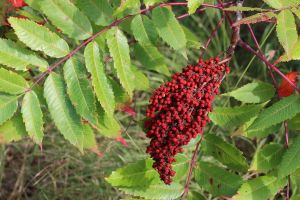 Red sumac berries can be harvested in late summer to early fall when they are fully ripe. They are edible and can be soaked in water to make a vitamin C-rich beverage that is tangy and has a flavor similar to lemonade.
Red sumac berries can be harvested in late summer to early fall when they are fully ripe. They are edible and can be soaked in water to make a vitamin C-rich beverage that is tangy and has a flavor similar to lemonade.
Dried berries can be ground up and used to add a sour note to dishes.
If reading “sumac” triggered a warning light in your head, that is because white or green-berried sumacs are poisonous!
Pine (Edible and Medicinal)
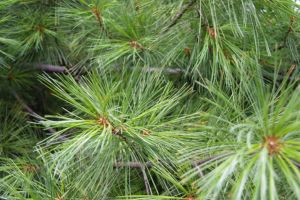 The inner bark of several pine species can be cooked and eaten or dried and ground into a flour substitute.
The inner bark of several pine species can be cooked and eaten or dried and ground into a flour substitute.
Pine needles contain 4-5 times more vitamin C per volume than oranges and can be brewed into tea. Many species have edible pine nuts that are packed with nutrition.
Pine needle tea has the added benefit of acting as an expectorant to thin respiratory mucus, and the sap has antiseptic properties that are useful for treating wounds and preventing infection. Unfortunately, in a crisis, it’s best to treat infections using antibiotics. That’s why I use this secret method to stockpile emergency antibiotics without a prescription.
Wild Garlic (Edible and Medicinal)
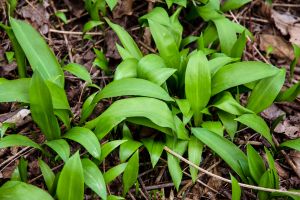 Wild garlic is entirely edible, with a flavor and usage similar to domesticated garlic.
Wild garlic is entirely edible, with a flavor and usage similar to domesticated garlic.
The bulbs and leaves can be eaten raw in salads, cooked in dishes, or pickled for later use.
Medicinally, wild garlic is believed to help reduce blood pressure and cholesterol.
It also has antimicrobial properties and is known to be beneficial to the digestive and immune system.
Similar to Morphine: The Best Natural Painkiller That Grows in Your Backyard (Video)
Dandelion (Edible and Medicinal)
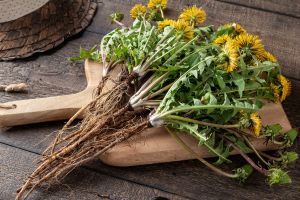 Dandelions are packed with nutrition, and all parts of the plant are edible.
Dandelions are packed with nutrition, and all parts of the plant are edible.
The leaves provide vitamins A, C, and K, and minerals like iron, calcium, magnesium, and potassium.
They can be dried and used as tea leaves. They can also be eaten raw in a salad or cooked.
The roots can be dried and used as a coffee substitute, and the flowers can even be made into wine.
Medicinal uses for dandelion include supporting liver health, stimulating appetite, and being a diuretic. It can also be used as a treatment for skin and digestive issues.
Chickweed (Edible and Medicinal)
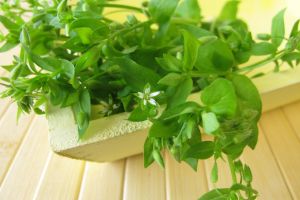 Chickweed is a rich source of essential vitamins A, B, and C. This versatile plant can be eaten both boiled or raw.
Chickweed is a rich source of essential vitamins A, B, and C. This versatile plant can be eaten both boiled or raw.
The entire plant is edible, including the leaves, stems, and flowers, each offering a unique flavor and texture. The leaves, in particular, are a savory herb that can enhance the taste of soups and stews.
Chickweed has anti-inflammatory properties and can be used to treat eczema, rashes, sunburn, and insect stings. It can also be used to draw out splinters and boils.
Mullein (Medicinal)
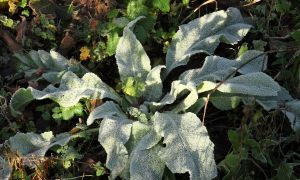
Mullein has traditionally been used to treat respiratory and ear infections. The leaves and flowers can be used to make teas or tinctures that relieve simple coughs or colds and more severe ailments like bronchitis and asthma.
⇒ What Happens If You Smoke Mullein?
Linseed oil or lard infused with mullein flowers provides anti-inflammatory and anti-bacterial properties, which are helpful in treating ear infections and skin conditions, including burns, wounds, and rashes.
Blackberry (Edible and Medicinal)
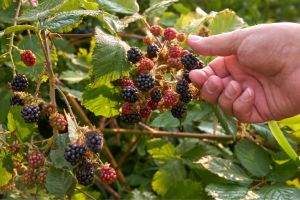 Blackberries are not only delicious and sweet but also packed with nutrition.
Blackberries are not only delicious and sweet but also packed with nutrition.
High in vitamins C and K, fiber, and antioxidants, they can be eaten fresh, used in cooking and baking, or preserved for later.
The leaves and bark are known to have astringent properties.
Blackberry leaf tea is useful for treating inflammation, sore throat, and diarrhea. The roots are even more potent for treating diarrhea and dysentery, which was common in civil war camps with poor sanitation standards.
Yarrow (Medicinal)
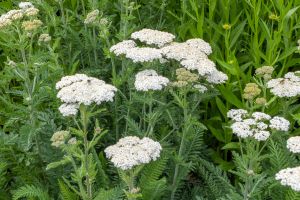 Yarrow is a versatile plant that can be used to treat a range of ailments. The leaves can be crushed and applied to wounds to promote clotting. This, combined with its antimicrobial properties, makes it ideal for treating open wounds. Anti-inflammatory and analgesic properties make it effective for treating pain, sore muscles, and even arthritis.
Yarrow is a versatile plant that can be used to treat a range of ailments. The leaves can be crushed and applied to wounds to promote clotting. This, combined with its antimicrobial properties, makes it ideal for treating open wounds. Anti-inflammatory and analgesic properties make it effective for treating pain, sore muscles, and even arthritis.
When brewed in tea, yarrow can reduce stomach cramps, alleviate gastrointestinal disorders, treat diarrhea, and stimulate the appetite. Yarrow is also an expectorant, making the tea beneficial for treating respiratory issues associated with colds and fevers.
Unfortunately, yarrow can be easily mistaken for poison hemlock. That is why I prefer to grow my own yarrow using high-quality, NON-GMO seeds packaged in US. They don’t restock them that often so I recommend you secure your own pack from here.
Plantain (Medicinal)
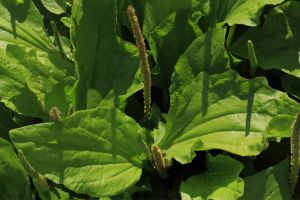 Plantain (the leafy plant, not the banana-looking fruit with the same name) is another extremely versatile medicinal plant.
Plantain (the leafy plant, not the banana-looking fruit with the same name) is another extremely versatile medicinal plant.
When crushed or chewed, the leaves can be applied to wounds, cuts, and insect bites for effective healing. With anti-inflammatory and antimicrobial properties, it is effective for treating skin conditions such as rashes.
When consumed, plantain provides expectorant effects to treat respiratory conditions. It can also aid in digestive conditions like heartburn, gastritis, and irritable bowel syndrome by soothing the mucous membranes along the digestive tract.
Civil War soldiers did not have modern medicine or logistics to rely on and instead met their needs with wild plants.
Many of these plants have been used since pre-historic times. Some, such as yarrow, have been mentioned as far back as the Trojan War around 1,200 BC.
To effectively use these plants, the soldiers had to be familiar with the correct species and recognize similar plants that could be poisonous.
In the realm of foraging, knowledge is your most potent tool. Our comprehensive guide to wild foods offers an unmatched resource for both beginners and seasoned foragers. We’ve covered everything from the basics of foraging and safety precautions to identifying, harvesting, and preparing wild edibles. So, embark on your foraging journey with confidence, knowing that you have a trusted companion in your pursuit of nature’s hidden treasures. Get your copy of The Foreger’s Guide To Wild Foods HERE
Luckily, this knowledge is not lost to time, and these plants can be as beneficial to know and use today as ever.
Anyone can join.
Anyone can contribute.
Anyone can become informed about their world.
"United We Stand" Click Here To Create Your Personal Citizen Journalist Account Today, Be Sure To Invite Your Friends.
Before It’s News® is a community of individuals who report on what’s going on around them, from all around the world. Anyone can join. Anyone can contribute. Anyone can become informed about their world. "United We Stand" Click Here To Create Your Personal Citizen Journalist Account Today, Be Sure To Invite Your Friends.
LION'S MANE PRODUCT
Try Our Lion’s Mane WHOLE MIND Nootropic Blend 60 Capsules
Mushrooms are having a moment. One fabulous fungus in particular, lion’s mane, may help improve memory, depression and anxiety symptoms. They are also an excellent source of nutrients that show promise as a therapy for dementia, and other neurodegenerative diseases. If you’re living with anxiety or depression, you may be curious about all the therapy options out there — including the natural ones.Our Lion’s Mane WHOLE MIND Nootropic Blend has been formulated to utilize the potency of Lion’s mane but also include the benefits of four other Highly Beneficial Mushrooms. Synergistically, they work together to Build your health through improving cognitive function and immunity regardless of your age. Our Nootropic not only improves your Cognitive Function and Activates your Immune System, but it benefits growth of Essential Gut Flora, further enhancing your Vitality.
Our Formula includes: Lion’s Mane Mushrooms which Increase Brain Power through nerve growth, lessen anxiety, reduce depression, and improve concentration. Its an excellent adaptogen, promotes sleep and improves immunity. Shiitake Mushrooms which Fight cancer cells and infectious disease, boost the immune system, promotes brain function, and serves as a source of B vitamins. Maitake Mushrooms which regulate blood sugar levels of diabetics, reduce hypertension and boosts the immune system. Reishi Mushrooms which Fight inflammation, liver disease, fatigue, tumor growth and cancer. They Improve skin disorders and soothes digestive problems, stomach ulcers and leaky gut syndrome. Chaga Mushrooms which have anti-aging effects, boost immune function, improve stamina and athletic performance, even act as a natural aphrodisiac, fighting diabetes and improving liver function. Try Our Lion’s Mane WHOLE MIND Nootropic Blend 60 Capsules Today. Be 100% Satisfied or Receive a Full Money Back Guarantee. Order Yours Today by Following This Link.




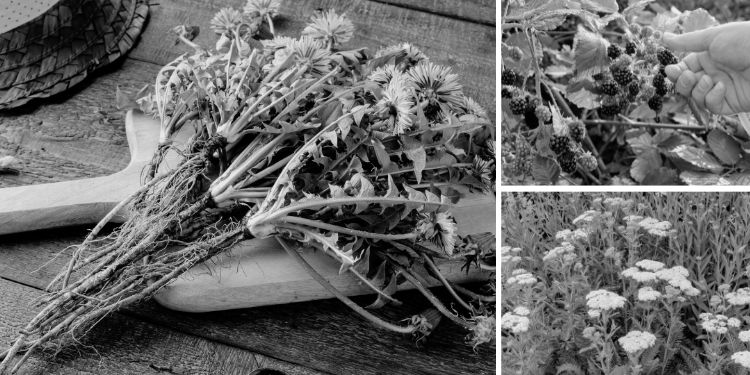 by
by 

